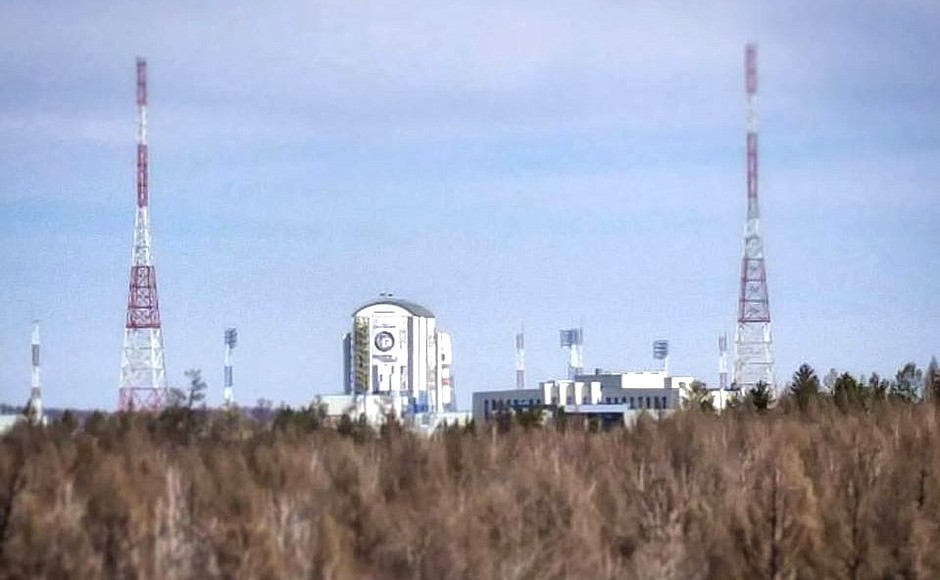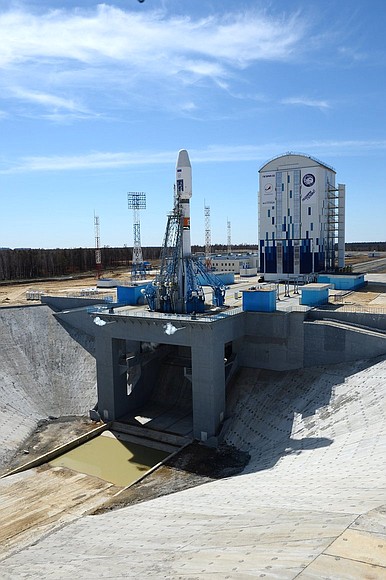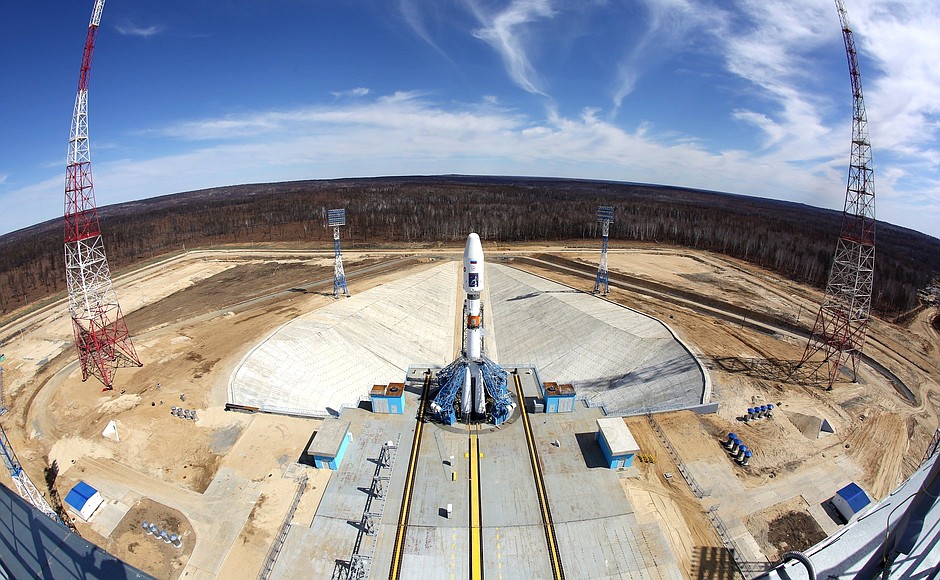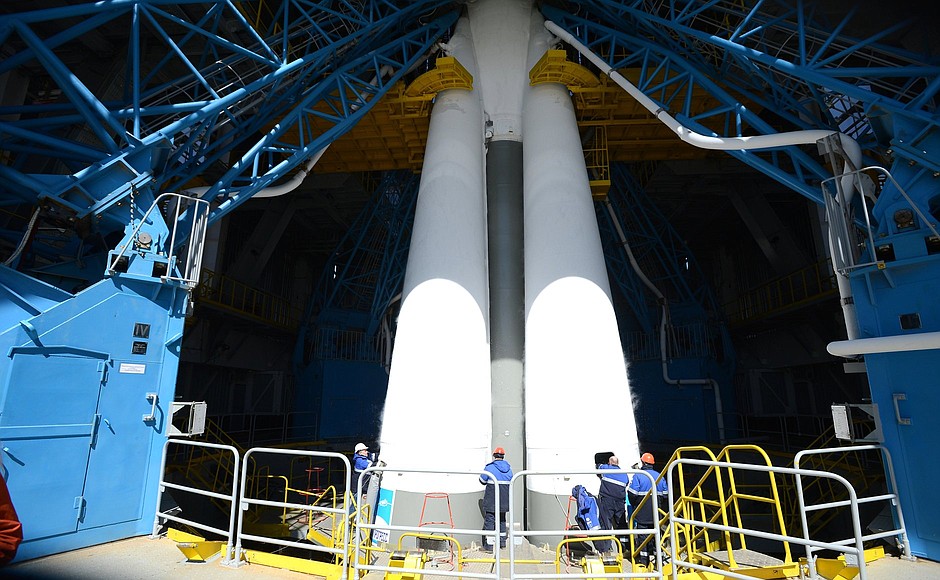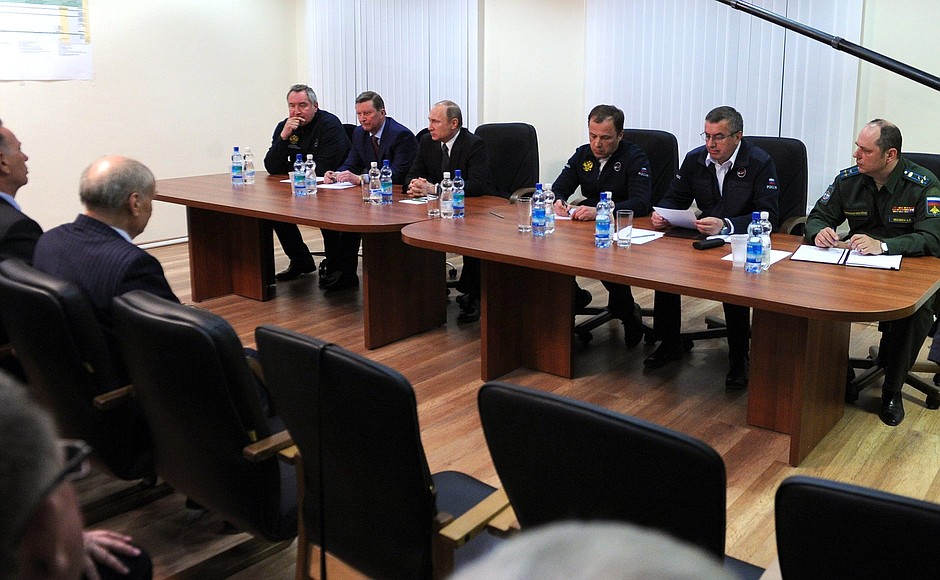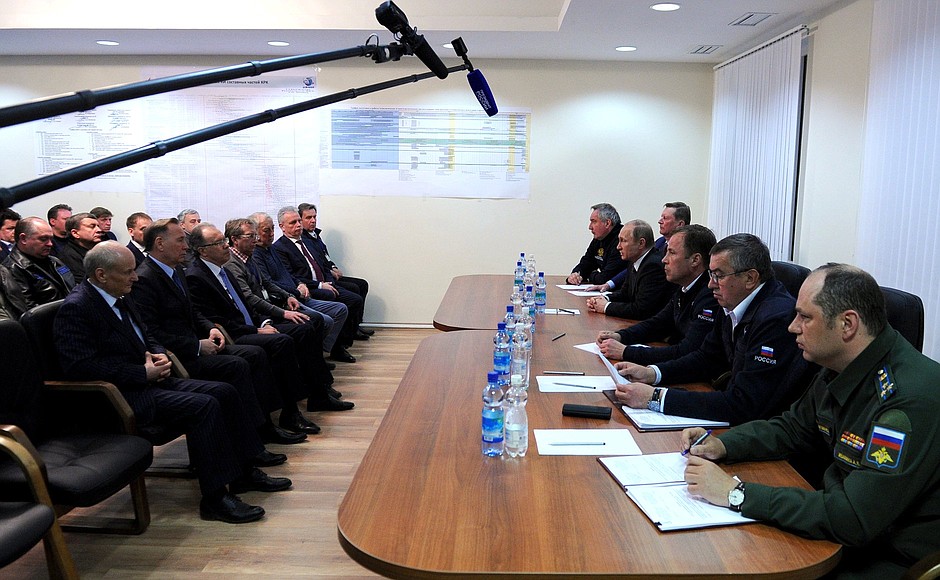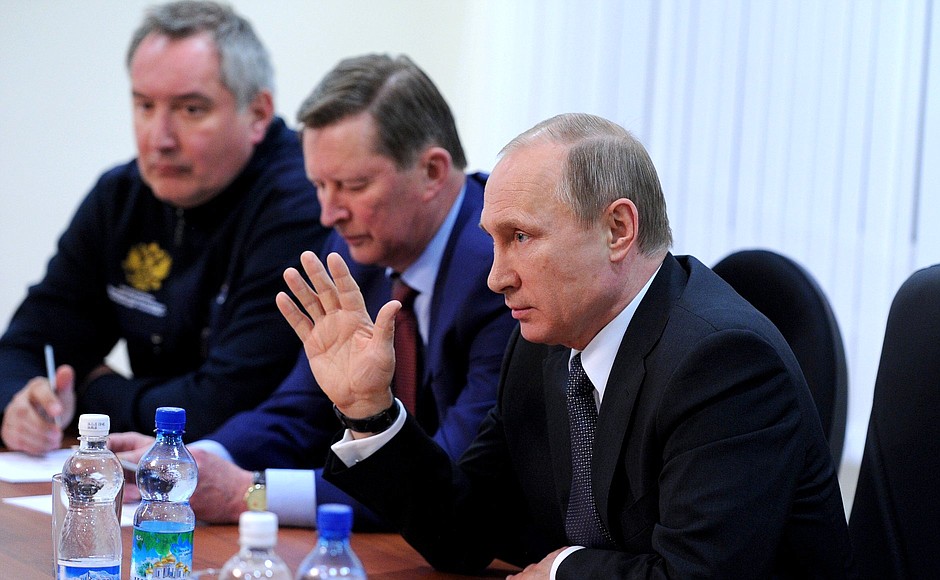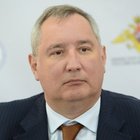Taking part in the meeting were Chief of Staff of the Presidential Executive Office Sergei Ivanov, Deputy Prime Minister Dmitry Rogozin, General Director of Roscosmos Igor Komarov, and First Deputy Director of Roscosmos Alexander Ivanov. The state commission must decide, in particular, whether to schedule the rocket’s launch for the reserve launch date, or postpone it to a later date.
The launch of the Soyuz 2.1a carrier rocket from the Vostochny Space Launch Centre was postponed for 24 hours due to a failure in the flight control system’s operation. The rocket will deliver into orbit three spacecraft – Mikhail Lomonosov, Aist 2D and SamSat 218.
* * *
President of Russia Vladimir Putin: Good afternoon, colleagues,
You recall that we first discussed the construction of a new space launch centre back in 2007, and I signed a presidential executive order on this subject at that same time. I came here for the first time in 2010, saw the taiga where we planned to build the site, and now here we are, building this space launch centre.
The aim of my visit today is to see whether the space launch centre’s construction has proceeded according to the set timetable. I see that much indeed has been accomplished, though not without problems. I hope I will yet have the chance to thank the people who have been working so hard here. It is no overstatement to say that the launch of what is effectively Russia’s first civilian space launch centre is a huge step forward in developing our space sector.
I say that I will have the chance to thank everyone here who has worked conscientiously, but let me recall that there were also a fair few problems. We ended up having to open six criminal cases, and four people were arrested. Two of them are under house arrest, it is true, and two others are in pre-trial detention. But if the guilt of those suspected of breaking the law is proven, they will have to exchange their warm beds at home for prison bunks, I have no doubt about this at all.
Nevertheless, despite all the difficulties and problematic issues, the space launch centre’s construction has proceeded to schedule and the planned level has been reached.
As far as I understand and have heard from my colleagues’ reports, the glitch in today’s launch is due not to the state of facilities here at the space launch centre, but is linked to the rocket’s system itself. In this context, let me say what we all know well, namely, that we almost lost this sector entirely in the 1990s.
The specialists working in this area have devoted their entire lives to this work and they know that voices came from various quarters, even from seemingly responsible people, saying that we do not even need such an expensive sector, that it’s better to have more sausage and bread.
Such people are clearly not far-sighted, because if our country were to lose high-tech sectors such as the rocket and space sectors, this would not bring us more sausage, bread or butter. On the contrary, we would lose development opportunities. Thank goodness, we woke up in time and reset our sights. The state authorities have invested large sums in the rocket and space sector over this last decade, as much as we possibly could invest, at any rate.
To be fair, the rocket sector has also showed a good pace of growth. If we compare growth in this sector and in all other production sectors, we see that it has grown a lot faster than related sectors. These are what the objective figures show.
But there are nevertheless some obvious glitches in the sector’s work. I will not speak now about issues that need our particular attention. For example, the way we had to make heroic efforts to extract state money for the sector from banks acting more as private purses. This was not the only problem that needed our attention and is not directly related to high-tech production or to science and technology.
I understand that problems and glitches are possible when new technology is still in the stage of being developed and tested. And we know and see that this is the case here too. This is natural and something to be expected. In such cases, we need to support the people who encounter these problems. New technology appears, for example, new units and components, and new mathematical calculations are needed. I know this and hear regular reports on what is going on.
Let me say again that glitches are possible, and we need to support the people who encounter problems, overcome them, and find solutions. I want everyone to know that we will give this support.
But if Mr Komarov says that of four failed launches at Kourou, two were due to bad weather, and two were due to technical problems, the gyroscope or something being out of order, you don’t even have to be a great expert in this complex area to start thinking that surely it was possible to make sure everything was in proper working condition first, check it all before assembly. What is this situation? Does this require complicated mathematics or something? I think this is simply a case of negligent approach and insufficient oversight over all the basic but extremely important processes in this sector.
I will listen to your reports now and will not intervene. I just want to listen, get an understanding of the situation, and see how you identify and analyse the problems in such circumstances. There is no question that we must draw some conclusions because yes, we are still the leaders in this sector, for all its problems, Russia still holds the lead for the number of launches. This is a fact and this is good, but the fact that we have encountered an increasing number of problems is not good. We will certainly need to take timely and professional measures in response to what we see.
I will not intervene in today’s work. I just want to listen to your analysis of the situation today, what you report to the co-chairs [of the state commission] and see what the reaction will be. I will adjust my own plans accordingly, stay here, or leave and come back again later. Either way, I will certainly be present.
<…>
